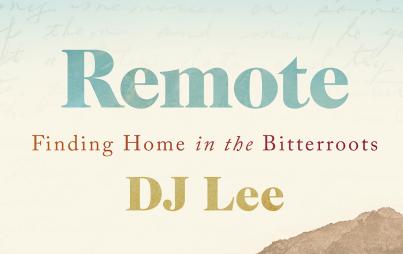
The sun is shining through a small slit in my blinds that is just slightly askew. Almost imperceptible, it’s not enough for anyone else in my house to even notice, but it’s nagging at me. Pulling. I can’t stand the break in the order of the remaining wooden slats, which are lined up neatly, like the processionary bag-shelter caterpillar, walking head to foot in perfect order. (If you weren’t aware of the processionary bag-caterpillar’s traveling habits, you’re welcome).
And I can’t stand the sun. Not today. Not this month.
A quick tap on my phone reveals the time, 7:23 am; the rest of the house is up. I can hear the shrill sounds of the toddlers playing, fighting, playing. I smell coffee, and I think, bacon. I can hear my husband trying to encourage the children to play together, trying to divert them. I can hear their cries of protest, and the eventual sound of PBS. I want the coffee. I can taste it. My husband takes great care in preparing the perfect cup. A specific set of steps—grinding, situating the filter just so, boiling water, pouring it over the grounds, slow, steady. It will result in a strong, hot cup of fuel.
I can’t get up.
I can’t make my eyes obey my mind. Open. Open. OPEN EYES. It is day.
My legs ignore my request for action. Just stand up. Come on. Stand up.
I’m tired. I’m not tired, I’m exhausted. I’m not exhausted, I’m paralyzed.
I have bipolar disorder.
I’ve known about it since I was young. Shrouded in shame, I hid it. Fueled by mania, I ignored it. Crippled by sadness, I called it depression. Now I treat it. A carefully balanced cocktail of tiny pink, yellow and white pills. Every day I choke them down with a big glass of water. A toast to my kidneys and their continued efficiency. The pharmaceutical cocktail is carefully balanced for function with a slice of sanity.
But my cocktail is wrong. It’s far out of balance. It’s a gin and tonic with only gin. It’s a martini with 10 olives. Currently I’m taking an anti-psychotic. I’m not psychotic per-se, but that’s what I’m swallowing. It’s not what I need. It’s not the right med. I know I need an anticonvulsant, like Lamictal. Science isn’t sure why they work to treat bipolar disorder, but they do. And I know they do because they successfully treated my mom for the whole six months that she was willing to forsake her mania by swallowing those pills everyday.
I also need a psychiatrist.
But there are only a handful of psychiatrists in my small town and it takes an act of God, or congress or both to get in to see one. I have good insurance. I self refer. I finally secure a spot with a doctor in a larger neighboring city. I have to wait 6 weeks.
My physician—who I believe wants to help me but doesn’t know how—has effectively prescribed a band-aid for an amputation. In addition to the SSRI I’ve taken since I was in my early 20s, he has added the anti-psychotic Seroquel and given me a bottle of Xanax, the anxious person’s cure-all. Alas the wound is still gaping and the bandage can't nearly cover it. The injury is showing around the edges. Leaking out in spurts of rage, bouts of sadness, tiny glimpses of normalcy. But mostly exhaustion.
Seroquel is supposed to “stabilize” my mood, and it is effective in its task. My mood is stable. I’m tired. Disconnected from my surroundings. Distant. Forgetful. I’m gaining weight. I can’t move to lose it.
I try, in vain, to describe to my husband, my friends, the sensation in my head. I feel so… dopey? Slow. Handicapped. Paralyzed. I recognize the hyperbole and know it won’t be well received. It sounds contrived. But the words evade. The medication slows me. I can’t remember things. I pause mid-sentence to reorganize thoughts. Sometimes I’m able. Other times I abandon the thought altogether. A wave of the hand. A dismissal. Inside I am frustrated. I’m capable, I know. If I could just get my brain and my mouth to communicate again. They live as separate entities these days. My mind is heavy with thought and then numb and then heavy again. Cycling inside, it’s not evident to those who surround me.
I think, I want to die. I don’t want to suffer death, the pain, the loneliness. I just want to . . . not exist. That’s the darkness that the mentally ill don’t like to share. It looms. It haunts. It’s not rational. But it seems rational. An escape.
And then I am frightened by my thoughts, by my self loathing. I see the faces of my children. I see my own face as a child, scanning my mother’s face for signs of stability, for evidence of normality, of calm. Will she yell today? Will she tell me she wishes I was never born? Will she cry? I think of how my life would have been without her. Better? Good? Great? And I shudder at that truth. I want to know her and love her. But I don’t. Her illness has stolen her from me, and from the grandchildren she will never know. She brought me into her sickness, like a shepherd and his flock, and she then gave it to me. Will I do the same? Will my own children remember my tears, the rage of my screams, the days I didn’t get out of bed?
I get up. My legs still won’t obey, but I will overrule them and their stubbornness.
I descend the stairs. One step. One step. One more step. Fourteen. I count them. There is comfort in the number. In the counting.
I find my husband standing over the stove. Spatula in one hand. Coffee in the other.
In the six weeks the medication has turned me from an infinitely repeating bell curve to the flat line of an ECG that no longer senses a rhythm—it has turned him too. He is picking up the pieces that I cannot. He is filling the blanks. He is completing the puzzle that I can’t seem to focus on.
He won’t complain. He will drive me to therapy and the doctor. He will go to the pharmacy and he will tell me to sleep when I’m tired. He will take the kids and their bikes to the park. He will do dishes, give baths, offer hugs. He will tell me it will be OK. That my meds will get corrected and I will be OK. And I will believe him.
I will sit on the sofa, staring blankly ahead, holding my babies. I will drink his perfectly crafted coffee. I will be OK.







